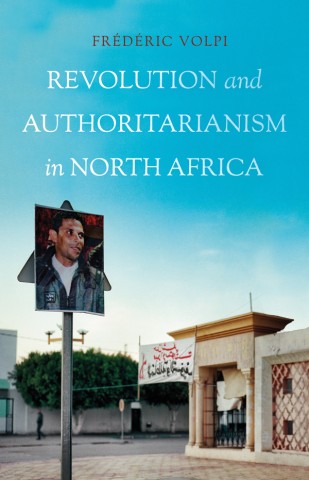The Arab Spring caught everyone by surprise, but was quickly explained as an expected, inevitable event. How can these largely contradictory narratives be brought together? This is part of the task undertaken in "Revolution and Authoritarianism in North Africa" (2017) by Frederic Volpi. The author writes that the "book strives to retain the implications of meaning-making in the construction of the causality and understandings of the 2011 Arab uprisings in North Africa. The argument is not merely that the idiosyncrasies introduced by multiple actors undermined the structural unfolding of revolution and transition in the region, but also that the protest episodes themselves were crucial elements in the formation of new political identities and processes. The task therefore is to generate better linkages between actor-based processes and the institutional-based dynamics of regime change and political reform… rather than compare and contrast the situations of those Arab countries that experienced regime change in 2011, I map the processes of change and of resilience that followed protest episodes in two countries that witnessed dramatic political transformation (Tunisia, Libya) and in two countries that experienced only mild institutional reform (Algeria, Morocco)" (p. 4-5).
The author takes a unique approach by combining theories – avoiding both the imposition of logic post-protest, and focusing solely on actors or institutions, but rather the unique and complex interactions between multiple factors. "The analysis I propose presents the dynamics of the Arab uprisings in terms of evolving interactions between actors in particular arenas of contestations" (p. 17). However, such individuals are not pre-determined to do anything: "people do not actually 'know' if or when they would engage in anti-regime protests until the protest was upon them. In this perspective, protest 'thresholds' cannot be estimated in advance because they are not only based on pre-existing preferences, but on new preferences generated as the protests unfold and as people reinterpret what is happening around them and to them" (p. 23).
Change is far more complex and unpredictable: "Had the provincial governor been aware of the risk of local riots in the central provinces being a catalyst for a national revolt, he might have dealt with the initial unrest in Sidi Bouzid differently. The inability to understand the transformative potential of such protest events is not simply a failure to predict accurately what might happen. It also reflects a particular mastery of techniques of authoritarian governance which are known to be effective, but to that moment. From a regime's perspective, cognitive failure is therefore not simply a lack of anticipation; it is also the result of having too much experience of a particular kind" (p. 76).
Volpi offers detailed insight into the North African uprisings, challenging many of the common assumptions about the Arab Spring, as well as social movements and how change happens. The book is an excellent resource, but would be challenging reading for undergraduate students – the readership of this book is likely academics and graduate students.
Interesting side note:
"The economic liberalism promoted by organizations like the International Monetary Fund (IMF), which were called upon by regimes to help resolve their financial difficulties, directly contributed to the rolling back of the welfare state in the region. The privatization of social services led to the growth of of the welfare provision of Islamist organizations, which stepped in to replace state provisions" (p. 46).

